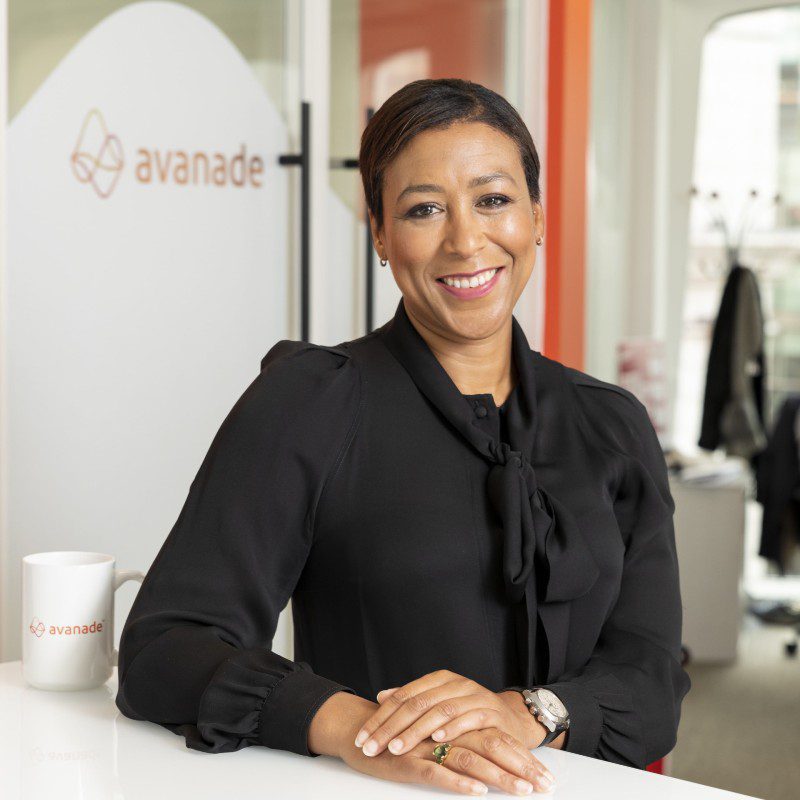How AI can amplify human traits in the hiring process
Avanade CEO Pam Maynard and Global TA Lead Paul Phillips share their top tips in this exclusive OpEd.
Expert Insight
AI centricity is people centricity.
That's the perspective of Avanade's CEO and Global TA Lead.
Here's how to leverage the potential of AI and recruiters in partnership to drive a truly supercharged recruiting process.
AI capability isn’t new, but the way we think about it is changing.
The world has woken up to the fact that AI tools can help people spend more time doing things that matter.
Recruitment is a great example.
Whether it’s crafting job descriptions, sourcing candidates, or processing large volumes of applications, AI can make the hiring process more efficient, enabling organizations to scale their recruitment and reduce time-to-hire.
At Avanade, we’ve already seen this in action.
Last year, AI saved over 15,000 hours spent screening candidates. Now, we’ve developed a generative AI job posting tool, which we estimate will give more than 1,300 hours of time back to our recruiters annually.
That’s a lot of time saved, but there are even more valuable ways to measure the impact of AI.
With extra time, certainly recruiters can fill additional roles, but even more critically, it gives them deeper capacity to make human connections with candidates, hiring managers and interviewers, and their own personal employee experience.
Ultimately, embracing AI as part of an organization’s recruitment efforts is critical to give hiring teams the time and tools to show up, be human, live our culture – and make it count.
How AI could make recruiting more people-focused
It may sound counterintuitive, but AI-centric is people-centric.
When used thoughtfully, AI can make space for more human connection to the benefit of candidates and recruitment teams alike.
Over the last year, we’ve brought this philosophy to life in Avanade, where AI is creating opportunities for us to:
- Intentionally nurture candidates and elevate their experiences throughout the recruitment lifecycle at relevant touchpoints
- Deliver insights and efficiencies that help recruitment professionals continually hone their skills, expand their capabilities and deepen their impact
- Understand the strengths of our talent acquisition process and identify areas for improvement
Balancing AI-driven efficiency with human empathy, intuition and connection
Of course, we must remain vigilant about maintaining a healthy equilibrium between technology-led and human-led experiences.
It’s a delicate balance to manage and requires purposeful decisions about when it makes sense to apply AI and when to hold it back and let humans shine.
So, once AI tools have completed the initial candidate screenings and assessments, human workers’ empathy and intuition can come to the fore and start working their magic.
Think about something like communicating and embodying the company’s culture – that’s an area where only people will excel.
An experienced recruiter will bond with a candidate better than AI ever can, helping ensure they’re someone who will culturally fit in with the team and, thus, be more likely to stay with the company over the longer term.
And, thanks to AI automated admin working in the background, these emotional due diligence conversations can happen sooner.
Banishing bias and other AI risks
The potential for AI is incredible, and the pace of its advancement is rapid, which inevitably means that the risks are significant.
The EU AI Act classifies most HR-related AI solutions as potentially high risk, requiring far more gates and guardrails to ensure responsible use.
Leaders need to use strategic judgement to determine why, how, and where to invest in AI tools.
Establishing a reputation of trust and accountability, and protecting the privacy and well-being of talent goes beyond just ensuring systems are secure and resilient to data theft or compromise.
Organizations also need to prioritize transparency about exactly where and how AI is used and develop, communicate, and monitor the desired outcomes.
At Avanade for example, we just launched a new Application Tracking System (ATS), which gives candidates the choice about whether they want AI to be part of their application process or not.
We therefore have a responsibility to ensure our use of AI is ethical, secure and trustworthy.
We must also be alert to the potential for bias.
Data is the catalyst for AI algorithms, enabling them to learn, adapt and make decisions, so a critical success factor in leveraging AI is the quality and quantity of the data.
Training AI using biased data can create unfair or discriminatory recruitment decisions, particularly in terms of gender, race, or age.
To eliminate the risk of AI introducing or perpetuating inequities in the workplace, we must first ensure that the professionals who are creating the AI models and producing AI algorithms are diverse themselves.
We must then go even further to ensure diverse teams are tuning the models, critically reviewing the results for bias – and that business leaders are taking accountability for driving change in their processes to eradicate any bias they find.
Remarkable AI-enabled experiences will fuel the future of recruitment
Looking ahead, we expect many more opportunities to create remarkable recruitment experiences for candidates using AI to emerge, such as:
- Hyper-personalized, timely candidate communications, including nudges and dynamic follow-ups.
- Tips, resources and support for interview preparation and readiness.
- Resources that turn the spotlight on the company’s culture and provide candidates with a preview of the journey to come.
AI will also continue its good work enabling the development of new capabilities and skills within hiring teams, for example, by allowing them to:
- Leverage data and insights to make more precise talent matches and hiring decisions.
- Improve their interviewing skills, participate in interview coaching opportunities, and ensure fair and balanced assessments.
- Continue to eliminate bias from all processes and foster a culture of belonging and respect.
- Use feedback tools that synthesize key learnings and help them build a process of iterative improvement.
AI as a recruitment ally
There’s a natural friction to the idea that AI should have any control over recruitment.
But, done right, AI is proving itself to be a powerful ally, revolutionizing the way organizations discover, attract and secure top-tier talent.
It’s already helping recruitment teams make more precise talent matches, improve their interviewing skills, ensure fair and balanced assessment processes, make better hiring decisions, and actually advancing diversity by removing natural bias from the screening process.
But, perhaps most importantly, AI is helping companies bring the candidate experience front and center throughout the recruitment lifecycle through its ability to amplify human connection.
While AI is powerful on its own, it’s incomplete without the backgrounds, personalities and life experiences of the people who create and use it.
Sign up to the UNLEASH Newsletter
Get the Editor’s picks of the week delivered straight to your inbox!

CEO, Avanade
As CEO of Avanade, Pamela is passionate about building a people-first culture for Avanade’s employees.

Global Head of TA and Onboarding, Avanade
Phillips is Global Head of Talent Acquisition and Onboarding at Avanade and leads a team across 26 countries
Contact Us
"*" indicates required fields
Partner with UNLEASH
"*" indicates required fields